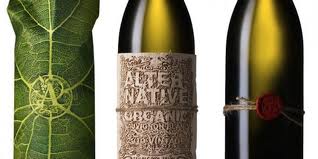In the last decade I have discovered that the wines I enjoy the most are often produced by organic and biodynamic wineries. This intrigues me.
I come from an era when an ad slogan beloved in my high school, was “Better living through chemicals.” By nature I also tend to worry less about motivation and more about outcome. In addition I spent the last thirty years of my life with a morbid fascination of fraud, particularly wine fraud.
[related_content slugs=”inexpensive-french-whites,dr-booze-breaks-the-50-mark,time-for-the-dr-booze-challenge” description=”More from James Romanow” position=”right”]
These three factors make me somewhat resistant to the quasi-religious faith systems many consumers invest in their foods and eating habits; which is why I find that opening statement so fascinating. I cannot think of anybody less inclined to chase organic products than myself.
What most consumers don’t realize is how entrenched are the notions of organic viticulture are in the wine world. Some of the largest producers in the world are organic and more are choosing this route every year. Many of them always have been organic. As it happens, the back label of a wine bottle is lousy place to try to explain this to consumers. Therefore to help y’all out, I am writing a series of columns on the various forms of viticulture and production this takes.
I spoke a little while ago with Thomas Perrin the scion of the Perrin clans who make among other things Chateau de Beaucastel, one of my favourite wines of all time. It turns out Perrin has been an organic winery since 1962 when Thomas’ grandpere Jacques took the winery organic. His reasoning was straightforward. “It is better to be in good health than to try to cure a sickness.”
But note this, wine drinkers! Despite Jacques early start, the winery was not certified as organic until 1999. Until then, the statement from the family that they were organic farmers was enough. It was only when faced with demands from Canadian and American retailers and drinkers for proof that they bothered to certify. As you can imagine there are still vintners in France and Europe who have always been organic, and understandably resent this demand.
Since then Perrin has proceeded to make sure every winery and every vineyard they own is either certified or in the process of achieving certification. Between Chateau de Beaucastel, Coudelet de Beaucastel and Perrin wines, this is a winery that produces several million litres of wine per year, well over 200,000 cases.
From Thomas point of view certification is not a difficult chore. “When you have been organic for more than ten years prior to applying for certification, it is an easy task.” And of course it helps that Perrin has now jumped through the hoops several times, and has the bank balance to support such endeavours.
The Perrin commitment to organic viticulture is complete. Thomas does not believe it is possible to be sustainable without being organic. And he is looking at the Biodynamic philosophy as a possible future for Perrin. Bear in mind that NONE of the marketing for Beaucastel includes information on being organic, and it is seldom obvious in other marketing materials. His goal is to produce good wine in a manner he and his family view as the best possible way.
Unlike vintners on this side of the Atlantic this commitment goes right down to the smallest ingredient in wine making, the yeast. “I think that the grapes work best with yeasts that grow with them. It seems to me that organic wine made with inoculated yeast, makes it more difficult for the grapes to ferment properly.” More than a few organic vintners on this side of the Gulf Stream use the commercial catalogue of yeast strains and inoculate.
He is not anti-sulphite. For the record less than two per cent of those claiming sensitivity to sulphites are so. Most of the attributed sensitivity is caused by other factors. (From what I’ve seen, most such people are just sensitive to very bad wine.) However Perrin wines are sourcing sulphites from volcanic activity as Perrin believes the more naturally generated compounds react out of the wine more quickly. (Aged wine has the least sulphite content, and can achieve zero content.)
If you agree with any of Perrin’s reasoning, or merely wish to consume more organically produced product yourself, I can recommend any of their wines, from Vielle Ferme through to the jewel Chateau de Beaucastel. They’re all excellent.
Chateau de Beaucastel, France, 2008. $77.80 *****
Coudelet de Beaucastel, France, 2010. $31.84 *****
Perrin Cotes du Rhone Reserve, 2010. $17.47 ****
Les Vielles Ferme Red, 2010. $13.80 ****
Les Vielles Ferme White, 2010. $13.80 ****
–
James Romanow writes about Wine and all things boozy for the Spectator Tribune. Follow him @drbooze.
